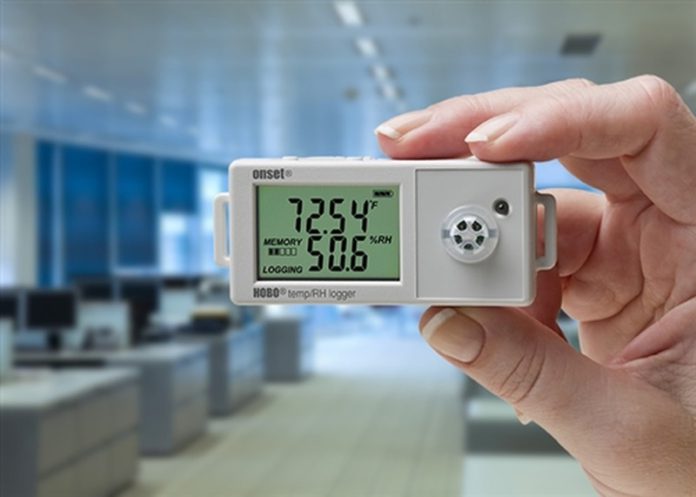Data logging is the recording of activities, insights, or assessments over a period of time. In addition, the instrument used for data recording is termed a data logger. Once ongoing measurements of a device are required, data loggers take place. Data loggers Australia have evolved into an essential component of subsurface devices and monitoring. This enables the user to collect numerous sets of data about a given scenario or process, frequently obtained distantly over a long period.
What Is A Data Logger?
Data loggers, also referred to as data recorders, can be used in various uses such as investigation, analytical, performance, and process control. As a consequence, they are employed in a wide variety of sectors. They are designed to collect and store vast volumes of precise and detailed measured data, generally as a way of monitoring critical external components in a particular operation, time, or location.
Why Is It Essential To Use Data Loggers Australia?
Data logging encompasses a wide variety of actions, objectives, and locations. Specialised data capture instruments are typically applied in situations wherein significant measures must be recorded on a constant and continuous basis over longer durations.
Good examples of frequent industrial, field, and scientific data logging applications include:
- Data loggers are extensively employed in many environmental studies and monitor occurrences such as weather systems, temperature change, river levels/cleanliness, and various aspects of wild communities and ecosystems.
- Many monitoring systems and response equipment are used in health and medical institutions.
- Numerous scientific and environmental control applications include disinfection, cooling, storing, and culture.
- Evaluating agronomic and horticulture development and resource efficiency
- Production, preservation, transportation, and presentation of food
- Incidents, traffic congestion counts and liquidity management, railways communication efficiency, constant pollution detectors, overall automobile safety checks are examples of automotive and transportation surveillance, efficiency, and protection.
Moreover, there are several explanations why particular vocations, positions, or enterprises may require data tracking tasks like those stated above. Aside from merely improving productivity and effectiveness along with a wide range of activities, data loggers Australia is frequently linked to concerns of commercial regulations, health safety management, compliance with the law, and environmental conservation.
Data Loggers Australia Come In A Variety Of Types
There are several different kinds of data loggers Australia is required to aid the hundreds of various jobs these adaptable sensors may accomplish. Some significant categories you could be aware of include ‘black box’ aircraft and voyages data monitors, accident data recorders, distant weather data, tracker and lap timers, and various kinds of vehicle sensors and onboard diagnostics recording devices.
Many kinds of data loggers Australia may purchase to fulfil specific industrial equipment or residential roles and duties, such as:
- Data recorders for sound levels
- Data recorders for water levels
- Density sensors for light
- Data recorders for shock and vibration
- Ecologic metres and data recorders of various sorts
These are only a few instances. However, the fact would be that this technology can use to record practically any quantitative property of an environment or process.
What Does A Data Logger Do?
A data logger operates by constantly analysing and capturing particular environmental characteristics using sensory components, subsequently saving the generated data in memory. They may be built as simple standalone instruments or as highly complicated multi-channel models with several detectors and peripherals for recording a more comprehensive range of parameters.
The Advantages Of Data Loggers Australia
It might be beneficial to find earlier trends in behaviour or performance and provide more relevant and useable data sources. Moreover, prominent data logger characteristics and functions include:
- Data loggers Australia can help powerful store performances, environmental, or assessment information.
- It may be highly beneficial to identify prior patterns in behaviour or effectiveness and give more relevant and usable data sources.
- Due to its small form and durable exterior, some data loggers may be kept around for as lengthy as they need to collect measures constantly at set times.
- Therefore, activities and events may follow over longer than feasible with equipment that needs direct human supervision.
- It is unnecessary to link them to other equipment for collecting data since they are self-contained.
- As a result, data loggers Australia are more accessible (in terms of place and time) than devices that lack independence.
- Several data loggers Australia is a consumer country that requires merely setup instead of software.
- Input signals may be conventional or digitised throughout most multi-channel information recorders (wind speed measured via a paddle, for example). Some are exclusive to a particular thermocouple or atmospheric sensor.
- Reduced power options are standard, allowing numerous devices to go longer among replacement batteries or chargers.
- Rates vary based on your budget and the accuracy of your data gathering. Choices range from low-cost plug-and-play models to elevated models with full mobile wireless features.
Conclusion
The primary role of data loggers Australia is to generate a database of measures throughout time at prescribed times. Data logging is used to capture measurements in various fields of study and business, such as product testing process, environmental control, quality audits, research experiment, and concept proofing. The primary benefit of employing a data recorder to capture measures is that it reduces mistakes and time wasted noting down or inputting test findings.
The user may monitor the readings of specific data loggers in near-real-time by connecting them to the Internet and repeatedly dialling the appropriate IP addresses in an internet browser. Many loggers have interfaces for programming environments, such as the application programming suites from International Instruments. They enable developers to create bespoke applications software for data logger hardware.















